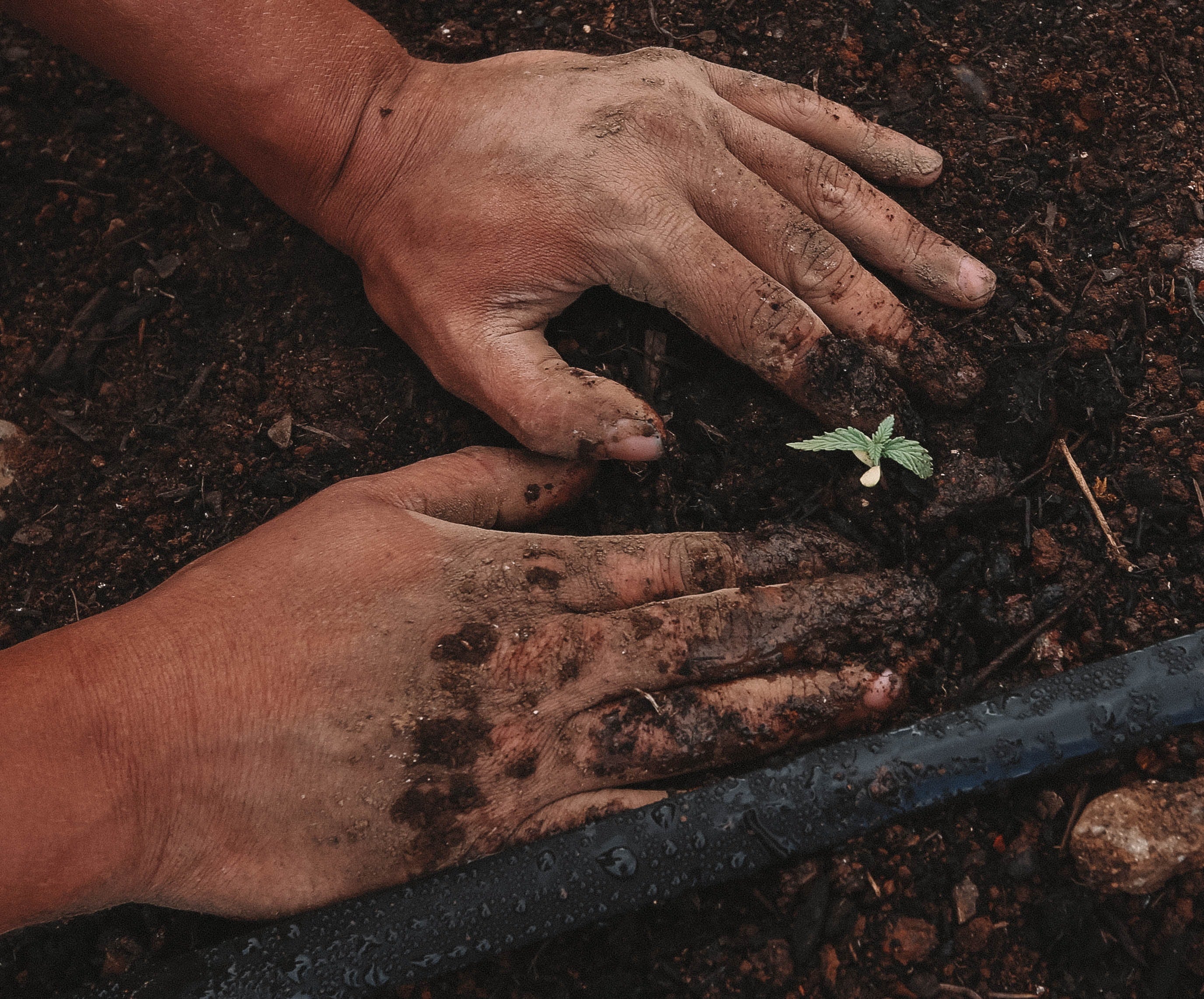

Greetings, fellow survival gardening enthusiasts! If you've ever envisioned a garden bursting with life, teeming with lush foliage and a vibrant harvest, you're in for a treat. In this comprehensive guide, we're delving deep into the realm of gardening magic – the miraculous impact of composting soil on your beloved plants.
What Makes Composting Soil a Miracle?
Composting soil stands out as a game-changer due to its nutrient-rich composition. Packed with organic matter, this magical mix becomes a nutrient buffet for your plants. The diverse array of essential elements promotes robust growth, boosts flowering, and enhances the overall health of your green companions.
Soil Structure Improvement
The wonders of composting soil extend to improving soil structure. If you've been grappling with compacted soil, this miracle mix comes to the rescue. Its unique blend helps loosen the soil, fostering better aeration and allowing water to penetrate more effectively. The result? A garden bed where plant roots can explore and absorb nutrients with ease.
DIY Composting Soil: Unleashing Your Green Thumb Potential
Crafting Your Own Compost Mix
Crafting your composting soil is not only gratifying but also cost-effective. Start by collecting kitchen scraps – think fruit peels, coffee grounds, and vegetable leftovers. Add in yard waste like leaves and grass clippings. Regularly turning the pile accelerates the composting process, leaving you with a homemade treasure trove of nutrient-rich compost.
Essential Components of DIY Compost
For a successful DIY compost, understanding the essential components is key:
- Green Matter: Kitchen scraps and fresh plant material provide nitrogen.
- Brown Matter: Dry leaves, straw, and newspaper contribute carbon.
- Microorganisms: Beneficial bacteria and fungi play a crucial role in the decomposition process.
Composting for a Greener Planet
Environmental Benefits
Beyond the magic it works in your garden, composting soil is a hero for the environment. When you compost, you divert organic waste from landfills, reducing the production of harmful greenhouse gases. It's a simple yet impactful act that contributes to a healthier, more sustainable planet.
Soil Health and Carbon Sequestration
Composting enhances soil health by introducing beneficial microorganisms that support plant growth. Moreover, it aids in carbon sequestration, pulling carbon dioxide from the atmosphere and storing it in the soil. In essence, composting soil becomes a small but vital step toward mitigating climate change.
Choosing the Right Composting Soil for Your Garden
Tailoring to Plant Needs
Every plant has its unique preferences when it comes to soil. For vegetables, opt for a compost mix rich in organic matter. Flower beds, on the other hand, thrive with composting soil that boasts a balanced blend of nutrients. Tailoring your choice to your plant's specific needs is the first step in selecting the right composting soil.
Enriched Composting Soil for Container Gardening
Container gardening enthusiasts, rejoice! Enriched composting soil designed for containers offers the perfect blend of drainage and water retention. Elevate your potted plants' experience with a mix specially crafted to meet their unique requirements.
Where to Find the Composting Soil Miracle
What is Compost?
Composting is like nature's recycling – a beautiful dance of organic materials returning to the earth, creating a nutrient-rich elixir for your garden. Wondering what to compost? Let's explore the organic symphony that fuels your compost pile and gives life to your plants.
Local Garden Centers
Embark on a local garden center adventure to explore a myriad of composting soil options. Engage with knowledgeable staff who can guide you in finding the perfect match for your gardening aspirations. Many centers also provide bulk compost, ideal for more extensive gardening projects.
Online Options for Premium Composting Soil
In this digital age, the convenience of online shopping extends to gardening supplies. Explore reputable online platforms specializing in premium composting soil. Dive into reviews to ensure you're investing in soil that lives up to its miracle-working reputation.

Compostable Materials: Building the Symphony of Soil Health
As you embark on your composting journey, consider collecting these natural gems to kickstart the composting symphony:
Fruit Scraps: Those slightly overripe fruits from your refrigerator find a second life in the compost pile, combating food waste with a burst of nutrients.
Vegetable Scraps: Trimmed stems, peels, and ends of vegetables join the compost party, enriching the mix with essential plant goodness.
Coffee Grounds: Give your morning coffee grounds a new purpose – they're a fantastic addition to the compost bin, bringing in nitrogen and a touch of caffeinated energy.
Eggshells: While they may take a while to break down, eggshells contribute calcium to the mix, supporting plant cell structure.
Grass and Plant Clippings: After a day of gardening, gather those clippings. Green matter like this adds nitrogen, balancing the composting act.
Dry Leaves: Autumn's gift continues in your compost pile. Dry leaves offer carbon, a crucial element for a harmonious composting process.
Finely Chopped Wood and Bark Chips: Embrace the woody wonders. These materials provide structure and a slow release of nutrients as they break down.
Shredded Newspaper: Yesterday's news becomes tomorrow's nutrient source. Shred newspaper into the mix for added carbon content.
Straw: A golden addition, straw introduces aeration and helps maintain the ideal balance of moisture in your compost.
Sawdust from Untreated Wood: Woodworking residue becomes a valuable compost ingredient, but ensure it's free from any harmful treatments.
What to Avoid in the Compost Symphony
While the composting symphony welcomes a variety of organic performers, it's essential to keep out the dissonant notes. Never add the following to your compost bin:
Meat Scraps: These can lead to unpleasant odors and attract unwanted pests.
Dairy and Cheese: The dairy aisle stays out of the compost to avoid imbalance and potential odor issues.
Fats/Oils: Save these for cooking – adding fats and oils can disrupt the composting process.
Pet Waste: While your furry friends bring joy, their waste can introduce harmful diseases to the compost mix.
Chemically Treated Wood: Ensure that any wood additions are free from harmful chemicals to maintain the purity of your compost.
Pro Tips for Maximizing the Composting Soil Effect
Timing Matters
Timing is everything when it comes to reaping the benefits of composting soil. Apply it during the opportune seasons of spring and fall to ensure your plants receive the full spectrum of nutrients when they need it most.
Mulch for Moisture Retention
Complement the effects of composting soil by adding a layer of mulch to your garden. Mulch not only retains moisture but also regulates soil temperature, creating an optimal environment for your plants to thrive.
Witness the Transformation
In conclusion, the composting soil miracle is not just a myth – it's a tangible reality within your reach. Whether you choose the hands-on approach of crafting your compost or opt for a premium mix, the benefits are undeniable. Prepare to boost your harvest, unleash your green thumb potential, and witness the transformative power of composting soil in your garden. Embrace this magical elixir, knowing that, beyond your backyard, you're contributing to a greener, more sustainable planet. Happy gardening!






